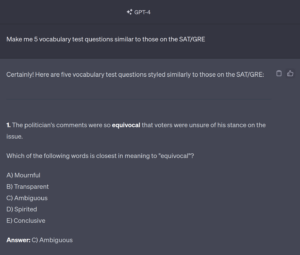One wud expect a small to moderate positive correlation, but it is simply not that simple.
Abstract
Although it is widely acknowledged that chess is the best example of an intellectual activity
among games, evidence showing the association between any kind of intellectual ability and
chess skill has been remarkably sparse. One of the reasons is that most of the studies
investigated only one factor (e.g., intelligence), neglecting other factors relevant for the
acquisition of chess skill (e.g., amount of practice, years of experience). The present study
investigated the chess skill of 57 young chess players using measures of intelligence (WISC
III), practice, and experience. Although practice had the most influence on chess skill,
intelligence explained some variance even after the inclusion of practice. When an elite
subsample of 23 children was tested, it turned out that intelligence was not a significant factor
in chess skill, and that, if anything, it tended to correlate negatively with chess skill. This
unexpected result is explained by a negative correlation between intelligence and practice in the
elite subsample. The study demonstrates the dangers of focusing on a single factor in complex
real-world situations where a number of closely interconnected factors operate.
Key words: Chess, Intelligence, Practice, Children, Verbal ability, Visuo-spatial ability, Speed
of processing, Memory span.
Does Chess Need Intelligence-revision-finalINT
I simple cannot believe, without overwhelming evidence, that chess skill is not associated with intelligence. However, as can be read in the paper, the relationship is surprisingly complex. It seems to me that what is needed is larger studies (sample size >200), that use small children or other people that have not been introduced to the game. In this way, one does not need to control for past experience. Indeed, one shud deliberately exclude people that report some prior experience with the game. Given that it is difficult to find such people in the adult population in western countries (perhaps eastern countries as well?), it is probably a good idea to restrict to the study to small children.
I’m thinking something like age 4-6, so either just before they begin in school or just after. Then, exclude all children that report having learning the rules of the game. Then, give such children instructions into how to play. Then let them practice in a controlled setting for a few weeks (perhaps a few times a week). Then test for intelligence and chess skill. This shud (i hope!) result in a positive correlation. Perhaps include measures of outside-of-class-practice after having been introduced to the game.
